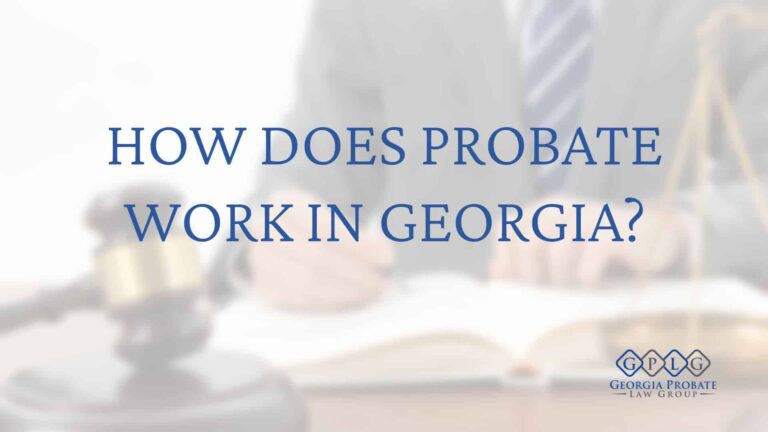After a loved one’s death, you may suspect that the executor is not handling the estate properly. Below are some common examples of executor misconduct and what can be done to avoid such situations.
Questions like these might have crossed your mind:
How do I find out if the executor is mishandling the estate?
Why the executor is not communicating with the beneficiaries?
Can an executor be charged criminally?
What are my legal options if the situation goes out of hand?
In this article, we will attempt to answer these pressing questions.
Who Is in Charge of an Estate Situation?
The probate court will appoint an individual known as a personal representative to take charge of the estate administration process.
If there is a will that assigns a person to manage the estate, that person will be called an executor. If there is no will, the person nominated and assigned to the position will be known as an administrator.
Once a personal representative is appointed, they will take an oath and swear to comply with the probate laws of Georgia.
Duties of a Personal Representative in Georgia
If a person is appointed as the personal representative, these will be their responsibilities:
- Complying with the probate laws of Georgia.
The executor must familiarize himself with the law to avoid potential violations of his fiduciary duty. - Following the terms of the will if it exists.
Serving as an executor can be challenging and demanding, but it is important to ensure that the decedent’s final wishes are fulfilled. - Ensuring that the estate is fully accounted for.
No matter how vast and complicated the estate is, it is the executor’s fiduciary duty to locate and identify all assets, debts, and expenses in the estate. Failing to keep track of these could result in mismanagement and put him at risk of civil penalties for any potential financial losses. - Ensure that distributions are made correctly.
The executor must carry out the distributions as outlined in the will. The administrator, on the other hand, must allocate the inheritance based on the intestate laws of Georgia.
Examples of Executor Misconduct in Georgia
- Executor not communicating with beneficiaries. Lack of communication with heirs and beneficiaries can lead to mistrust and suspicion. The personal representative should often reach out and update interested parties on the estate management’s progress.
- Stealing from the estate. Theft is a serious accusation that, if ignored, could lead to legal consequences. When executors use estate funds and estate assets as if they were their own, they breach their fiduciary duty.
- Favoring certain heirs or beneficiaries over others. The Personal Representative may have allowed one heir or beneficiary to choose estate property before allowing others to do the same.
- Not handling the estate in a timely manner. Georgia’s typical probate process timeline is 12-18 months, assuming no conflicts or disputes arise. If there is very little progress within this period, the heirs or beneficiaries may start to question the personal representative’s capabilities for managing the estate.
- Not providing an accounting of the estate. There may be reasons for the personal representative not being able to present an accounting of the estate, but from the perspective of heirs or beneficiaries, this could be a red flag that will trigger suspicions toward him.
- Engaging in self-dealing. Self-dealing is when the executor or administrator uses their position to gain personal benefit over the estate assets at the expense of the beneficiaries. One example is selling the deceased’s personal property to themselves or family members at a meager price.
- Not paying the debts and taxes. Executors have the legal obligation to fulfill the deceased’s tax obligations and creditors’ demands before distributing the estate assets. Neglecting to do so may lead to legal consequences for the executor personally.
Common Reasons Why Heirs or Beneficiaries Suspect the Executor of Estate Mismanagement
There could be more aside from the ones listed below, but these are the most typical causes:
- Failure to provide updates and progress on the estate administration process.
- Delays in asset distribution.
- Suspicious financial transactions.
- Failure to carry out the terms of the will or comply with Georgia law.
Can an Executor Be Charged Criminally?
If the executor’s misconduct is proven, the heirs and beneficiaries can file to have him removed, and the court can approve.
In this case, he could be removed from his position as a personal representative of the estate and subject to personal liability.
How Do Heirs or Beneficiaries Typically Attack an Executor?
When heirs or beneficiaries have suspicions related to the estate management and are looking for proof, they may:
- Start with a demand letter or email to the executor or administrator.
The first telltale sign that the interested party is growing impatient or suspects estate mishandling is when they send the executor a demand letter. A demand letter may request a full accounting of the estate, such as the total number of assets, debts, and expenses. It may also ask the executor to provide a timeline for distribution. - File with the Probate Court requesting the personal representative to provide an accounting to the court and heirs or beneficiaries.
In some cases, if the beneficiaries are not satisfied with the accounting provided by an executor or administrator, or if there is no accounting provided, these interested parties may consider bringing their request to court. - Attempt to file to have the executor removed from their position.
If the court grants their petition to remove the personal representative, they may also attempt to pursue and try to force him to pay back mishandled funds to the estate.
How to Prove Executor Misconduct in Georgia?
Proper estate administration may include the following pieces of evidence:
Full accounting
The executor provides an updated record of all income and estate expenses.
Inventory of assets
Gathers all the deceased’s properties and provides an itemized list of the estate.
Proof of communication
Show that they have made attempts to notify beneficiaries of the progress.
Proof of compliance with laws
Secure evidence that they are acting per Georgia Law. Requirements may include filing taxes and probate court proceedings.
If the executor in question does not follow the above, you might have a chance of proving their misconduct.
How to File a Complaint Against an Executor of an Estate?
First, these are very complicated situations, and we recommend having an experienced probate law firm assist you.
- Many times, it is best to attempt to open the lines of communication first. We may consider starting with a demand letter to ask that the executor comply with what we are requesting.
- If that does not work or if your attorney feels as if your situation requires a more aggressive approach, the attorney may discuss the potential of filing directly with the probate court. The specific filing will depend on the circumstances of your situation.
- Common filings are to request an accounting of the estate from the executor or to request that the executor be removed from their position.
These are just a few examples of filing a complaint against an Executor for general information purposes. There may be other examples that are not listed here.
Best Practices to Avoid Disputes and Executor Misconduct Before They Happen
To save himself from the headache of getting entangled in complicated disputes, the executor may take these steps to avoid suspicion in the first place.
- Open communication with heirs and beneficiaries
Honesty, transparency, and effective communication build trust. Even when formal reports are usually not required, we typically encourage executors and administrators to provide informal reports on the estate administration status to give heirs and beneficiaries peace of mind. - Keep a detailed accounting of the estate’s assets, debts, and expenses.
Record every transaction to have financial documents ready to show heirs or beneficiaries. Be proactive and keep them in the loop because transparency promotes good relationships. Maintaining records can also help the executors protect themselves in case of a legal dispute. - Keep an inventory of estate assets.
Probate inventory is an official list filed in the probate court. The list must be accurate and include all the decedent’s estate assets, such as financial accounts, real estate, vehicles, and personal property. - Ensure that the estate is discharged correctly once everything has been settled
Closing the estate will help protect the executor if anyone attempts to pursue him later for the estate. - Ask for legal support, and have a probate attorney assist
Executors should ask for assistance from an experienced probate attorney before opening the estate, especially if the estate is large and complex.
Next Step
Hiring a lawyer helps the executor fulfill their fiduciary duties according to the terms of the will or state law while avoiding potential liabilities and the beneficiaries’ peace of mind.
Whether you want to ensure the personal representative properly performs his duties, or you have suspicions of executor misconduct, please feel free to contact our office at (770) 796-4582 to set up a private consultation.
More information
Disclaimer These websites have not been reviewed by Georgia Probate Law Group and are not endorsed or even recommended by Georgia Probate Law Group. These websites are additional resources that you can use to further your general education on this topic.
Disclaimer: The information above is provided for general information only and should not be considered legal advice. Our probate attorneys provide legal advice to our clients after talking about the specific circumstances of the client’s situation. Our law firm cannot give you legal advice unless we understand your situation by talking with you. Please contact our law office to receive specific information about your situation.






























